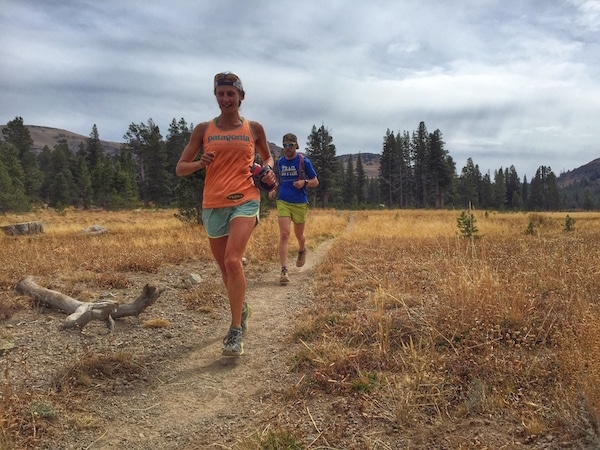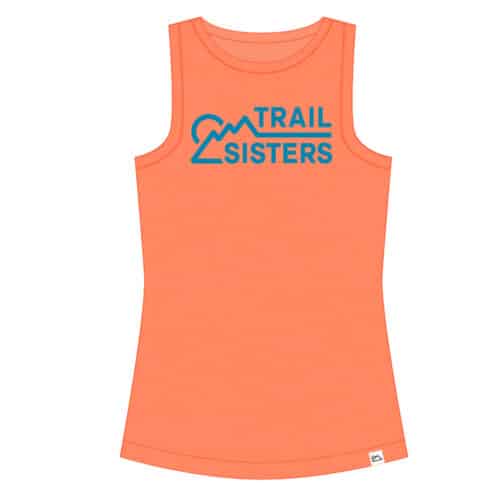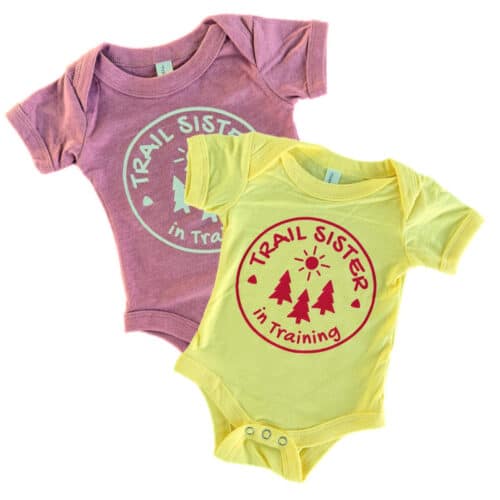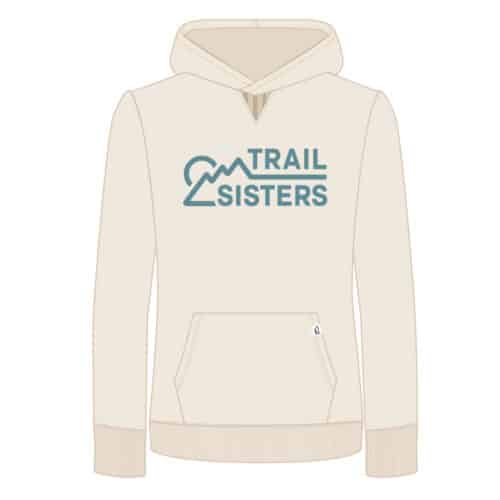The Panel of Experts from Ask the Trail Sisters answer your questions!
Learn more about the panelists and ask a question!
Speedwork: Is it really all that important, and if I need to do it, how much should I be doing per week?

Krissy Moehl
Speedwork is fun! Should be… It is great to check in with the different paces you have available to you about once a week. Checking in on speedwork can be doing 4-8 x 30 second strides, or a 20 minute tempo or intervals or …. Just remember, your easy pace days are just as important. The main point is mixing it up to keep your body responding to and adapting to how you want it to function.

Amanda Roe
I never did much speedwork until the past few years, and now I can feel how much it helps. I am a back of the pack runner so it’s been super helpful for longer races where I might be pushing up against a cut-off time. Combined with hill repeats (another whole topic), speedwork will make you an overall stronger runner. I have only ever done 1 or 2 sessions per week, as part of a scheduled training run.
Different people respond to different training methods and figuring out what truly “works” requires a hard look at one’s goals and how running best fits in one’s life. If you’re able to meet your goals and are much happier NOT doing speedwork, then I’d argue it’s not important, as it will only cause undue stress and resentment. If speedwork makes a difference and it’s work you’re willing to put in, I’d argue the opposite. Here’s the thing – you’ll never know if you never try. Start with incorporating speed workouts twice a week and commit to sticking with it for a few months. It may suck at first, but you just might learn to love it. I’ve found speedwork to be a huge monotony buster when putting in the volume and look forward to my workout days.
If you’d like to improve your times in races, then speedwork (or, even better, hill repeats) can really help. I’ll defer to the certified coaches in the TS family to share more, and just add as an older (50+) runner, I enjoy the benefits of speedwork as it has allowed me to stay competitive in ultra races. Specifically, I like to mix track workouts and hill repeats to build both turnover and strength. If there is a marathon training group in your town, my guess is that they have a speed day once per week that you can jump into with support from their coaches. If you live near hills and mountains, weekly repeats starting at 1:00 (with the same downhill recovery) progressing to 3:00 is a good start. For more information, there are great coaching resources on the benefits of speedwork available in trail and ultrarunning magazines that I encourage you to check out as well.
I do feel that speedwork is important to incorporate with your running. Depending on your goals I think it can really provide you with better results and overall greater fitness. I usually have certain weeks that are focused on speedwork 2-3 times per week with recovery runs in-between them. I would recommend talking to a running coach who could provide you with more details about speedwork.
Speedwork can be important and it can look a lot of different ways depending on your goals but I would also say that you don’t have to do speed work if it doesn’t align with your ‘reason’ for running. If you are looking for an extra challenge or want to work on your speed/strength then you can hire a certified coach to get very specific with your speed work or you can incorporate some simple techniques on your own (I’ve done the latter and never had a coach in the 20 years that I’ve been running!). I think the most important part is to not over do it and to listen to your body. Simple things like strides at the end of a run are a fun and punchy way to increase your leg turnover. A sneaky way to get some speed done is to find a running buddy who might be a little bit faster than you – I do this often to force myself to run a little faster than I would on my own routine! Frank Shorter once said “hills are speed work in disguise” so adding some hill reps or hill sprints to your trail run every now and then is fun and a good way to work those fast-twitch muscles on trails. Sometimes it’s hard to work up the courage to push outside of your comfort speed zone but once you do, you’ll feel that runner’s high! I would caution that many runners run their slow runs too fast and their fast runs too slow, so make sure you pair speed work with recovery runs too.
I think speedwork is great to include in your training, but it all depends on your goals. Speedwork trains you on aerobic capacity, running economy, ability to recycle lactic acid, dynamic flexibility+range of motion, and also mental push, etc. As a trail runner, you can try doing hill running with a variety of speed and interval lengths. It is important to have solid aerobic base in you before you do speedwork. 1-2 time/week
Because I live and run in a very hilly area, all my runs are hilly. Occasionally I’ll push harder running up my hills and find this helps build strength and speed for me when I race a flat course. That said, you may be training to run fast on a course with a lot of vert, so additional speedwork could be beneficial. I also understand that a routine involving a combination of hills, speedwork, long slow runs, and strength/stretch routine is considered by many runners to be more balanced and works well for them. I will defer to the other TSers here who do speed training regularly and can make specific recommendations about it.
I do think it’s important to mix up the pace during our runs and I do think there is value in intentional speedwork. But, there are definitely way more qualified people than myself on this panel who have better insight on this so keep reading to hear their advice!
Speedwork is important to build muscles that turnover and transition well when training for a goal (race, adventure run, etc.). Speedwork engages fast-twitch muscle fibers that normal running doesn’t always engage, and these fast-twitch fibers are beneficial for injury prevention in the long haul. However, speedwork isn’t something you just dive right into- you really ought to work up to it and I’d go as far to recommend working with a trained professional to avoid overuse, overdoing it and going out too fast, too quick. Most training plans will encourage one speedwork workout per week, and the workout will vary from week to week, athlete to athlete, goal to goal. Plus, speedwork is best with friends…running in circles 😉
I think it is a medium level of importance. It depends on the athlete, but I think practicing general variation of paces and efforts will help develop your cardiovascular fitness. I also think speedwork can take the form of running uphill. The point being, it’s important to practice running at different paces/efforts. I’d recommend 1-2 times per week.
Whether or not you’re training for a race, speedwork is important for building endurance and aerobic capacity, which helps you run stronger and longer over time. Incorporating speedwork into weekly runs can be as easy or elaborate as you choose. For example, once a week, toward the end of a run, try including a few cycles of fast running and recovery breaks before cooling down. Keep experimenting to find workouts that are sustainable work for your body and your goals!
I think it depends on your goals. I’m a back of the packer and I noticed that I was constantly chasing cutoffs and finish times at longer distances. After assessing my goals I realized I needed to shift my mentality and start incorporating it into my training on a regular basis. Speedwork is for anyone that wants to get stronger and I believe it’s important. How often depends on how many days a week you run because you can sneak speedwork into your training runs any day—think hill repeats or strides at the end of run. I have one dedicated day a week that we focus on speed-specific work—either tempo runs, mile repeats, progression runs or hill repeats. And then on my other training days we add strides at the end of run to work on quick foot turnover on tired legs.
I’m partial to speedwork since I was actually a sprinter through college, but I do think it’s helpful to incorporate some amount of speedwork into your training once a week. Get those muscles fired up!



























